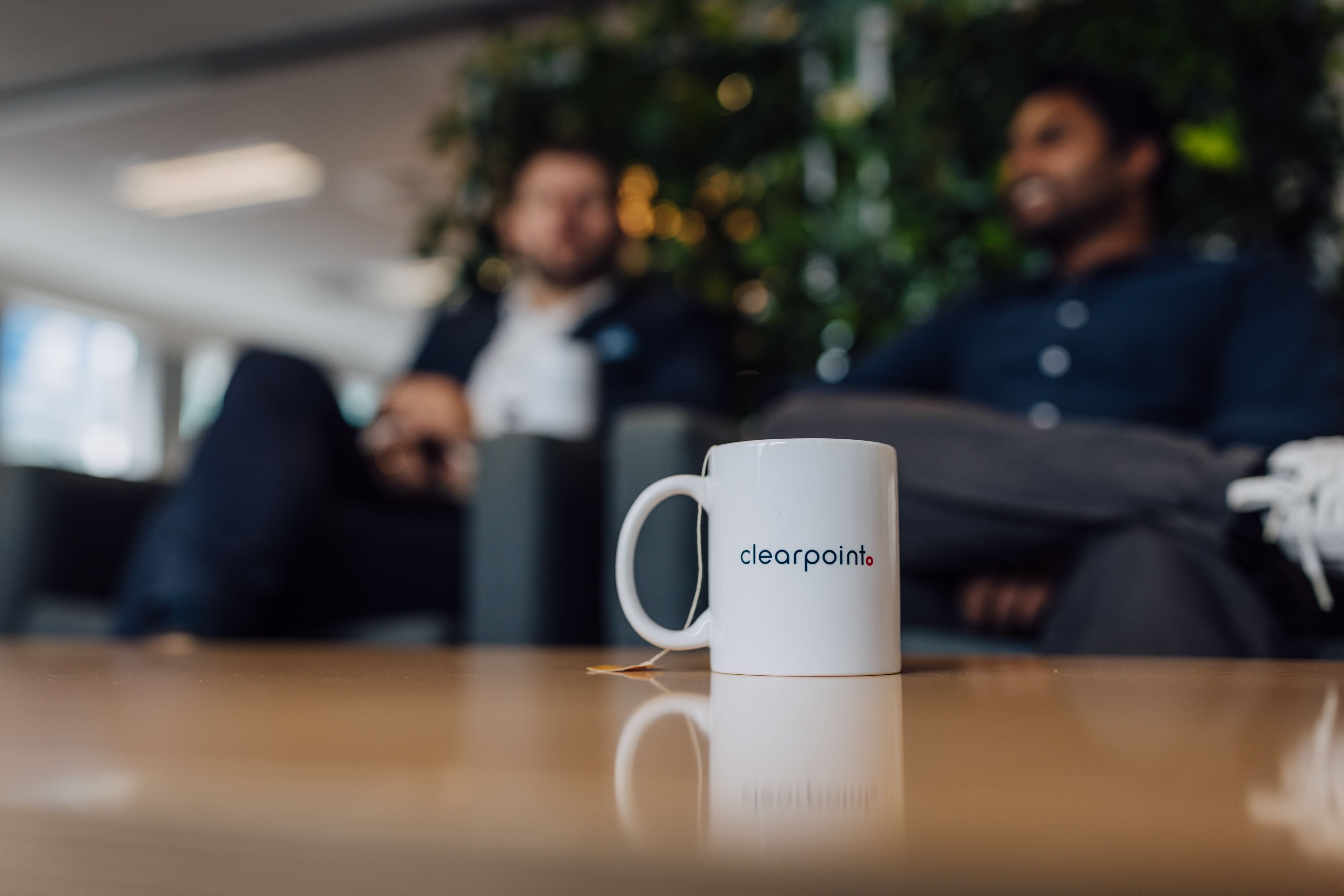ClearPoint Product Services Director Omkar Kadam explores the integration of Agile methodologies and Generative AI, highlighting how their synergy enhances efficiency, precision, and innovation. He looks at the automation of routine tasks, improved decision-making through real-time analytics, and the evolution of Agile practices, emphasising continuous improvement and data-driven strategies for future methodologies.
Imagine a world where Agile methodologies and Generative AI intertwine seamlessly, creating an ecosystem that thrives on efficiency, precision, and innovation. The integration of these advanced technologies promises to transform the landscape of Agile, driving evolution in ways that have been previously unimaginable. This fusion facilitates not only the automation of routine tasks but also enhances decision-making processes through real-time analytics and predictive capabilities.
Such advancements pave the way for more dynamic, data-driven sprint planning and continuous adaptation, fostering an environment where continuous improvement is not just a principle but a tangible outcome. As these methodologies evolve, the synergistic blend of human ingenuity and machine intelligence is set to redefine the boundaries of what Agile teams can achieve.
Trends in AI and Agile Integration
The integration of generative AI into Agile practices is already reshaping how teams operate. AI's ability to process vast amounts of data, identify patterns, and generate insights is a game-changer for Agile methodologies, which thrive on iterative processes and continuous improvement.
Automation of Routine Tasks
One of the most immediate impacts of AI in Agile is the automation of routine tasks. From generating user stories to updating task boards, AI can handle these repetitive activities, freeing up teams to focus on more complex and creative aspects of their projects. According to a McKinsey report, AI tools can reduce the time spent on documentation and code refactoring by nearly 50%.
Enhanced Decision-Making
AI-driven analytics provide real-time insights that can significantly enhance decision-making processes. By analyzing historical data, AI can predict potential project bottlenecks, suggest resource allocation strategies, and even estimate task completion times with greater accuracy. This predictive capability helps Agile teams stay ahead of the curve and make informed decisions swiftly.
Predictions for Future Methodologies
As generative AI becomes more embedded in Agile workflows, we can expect several key developments in Agile methodologies:
AI-Augmented Scrum Masters
The role of Scrum Masters will evolve with AI augmentation. AI-powered tools can assist Scrum Masters by providing real-time feedback on team performance, identifying areas for improvement, and suggesting actionable steps to enhance team dynamics. This augmentation allows Scrum Masters to focus more on strategic leadership and less on administrative tasks.
Dynamic Sprint Planning
Sprint planning will become more dynamic and data-driven. AI can analyse past sprints to identify trends and suggest optimal sprint goals and tasks. This data-driven approach ensures that sprints are aligned with the team's capacity and business priorities, leading to more successful and efficient project outcomes.
Continuous Learning and Adaptation
Generative AI can facilitate continuous learning by analysing vast amounts of project data and providing insights into best practices. Agile teams can leverage these insights to adapt their methodologies in real time, ensuring they remain efficient and effective. This continuous feedback loop enhances the Agile principle of iterative improvement.
Potential Challenges and Solutions
While the future of Agile with generative AI is promising, it also presents several challenges that need to be addressed:
Data Privacy and Security
The integration of AI in Agile practices requires access to vast amounts of data. Ensuring data privacy and security is paramount. Agile teams must implement robust data protection measures and comply with regulatory standards to safeguard sensitive information.
Skill Gaps and Training
The adoption of AI in Agile workflows necessitates a new set of skills. Teams will need to be trained on how to use AI tools effectively. Organisations should invest in continuous learning programs to upskill their workforce and bridge any knowledge gaps.
Managing AI Bias
AI algorithms can sometimes exhibit bias, which can affect decision-making processes. It is crucial to ensure that AI models are trained on diverse and representative datasets. Regular audits and updates of AI models can help mitigate bias and ensure fair and unbiased outcomes.
Vision for the Future of Agile with AI
The future of Agile methodologies with generative AI is a synergistic blend of human creativity and machine efficiency. Here’s a vision of what this future might look like:
Hyper-Personalised Agile Practices
Generative AI will enable hyper-personalised Agile practices tailored to the unique needs of each team. AI can analyze individual team members' strengths and weaknesses, providing customized recommendations to optimize performance. This personalized approach ensures that Agile methodologies are not one-size-fits-all but are adapted to the specific context of each team.
AI-Driven Innovation Sprints
Innovation sprints powered by AI will become a common practice. AI can generate new ideas, predict market trends, and identify opportunities for innovation. These AI-driven insights will fuel creativity and help teams develop cutting-edge solutions that meet evolving customer needs.
Seamless Collaboration and Communication
AI will enhance collaboration and communication within Agile teams. AI-powered tools can facilitate real-time communication, provide instant translations for global teams, and ensure that all team members are on the same page. This seamless collaboration will lead to higher productivity and more cohesive team dynamics.
Conclusion
The future of Agile methodologies with generative AI is not just a possibility—it's an impending reality. As we continue to integrate AI into Agile practices, we will see a paradigm shift in how we approach software development. The combination of human ingenuity and AI-driven efficiency promises to create a more dynamic, responsive, and innovative Agile ecosystem.
As an experienced Agile practitioner, I am excited about the endless possibilities that generative AI brings to the table. By staying ahead of these trends and embracing the potential of AI, we can ensure that Agile methodologies remain relevant and continue to drive success in the ever-evolving tech landscape.
So, are you ready to embrace the future of Agile with generative AI? Let's embark on this exciting journey together and shape the future of software development!
Feel free to share your thoughts and experiences with AI in Agile practices. Let's continue the conversation and explore the future of Agile together.
Interesting Facts and Recent Data
- Speed Gains: McKinsey found that generative AI tools can reduce the time needed for coding tasks by up to 50%, significantly speeding up the development process.
- AI Adoption: A recent survey by GlobalData revealed that the adoption of specialised AI models is expected to drive generative AI mainstream in 2024, making it a critical component of enterprise technology strategies.
- AI in Project Management: According to MIT Technology Review, generative AI is transforming project management by providing real-time analytics and enhancing resource allocation, leading to more efficient project outcomes.
Are you curious about the transformative potential of AI but unsure where to start? Our team of experts is offering a complimentary Lunch and Learn workshop to help you understand how AI can revolutionise your organisation. We will help you to realise the potential of AI and streamline the potential to meet your unique business needs. Find out more.



